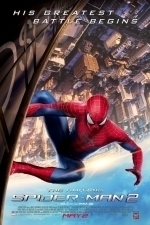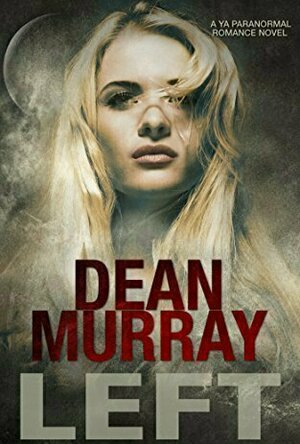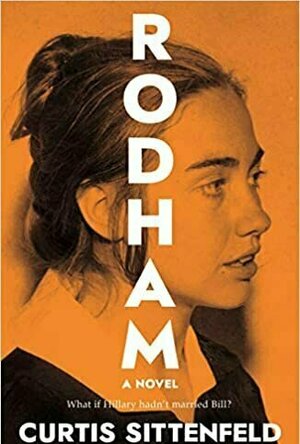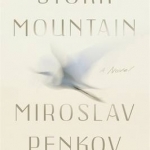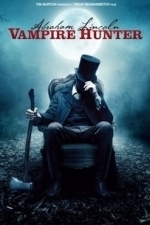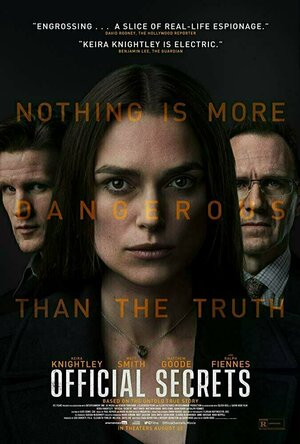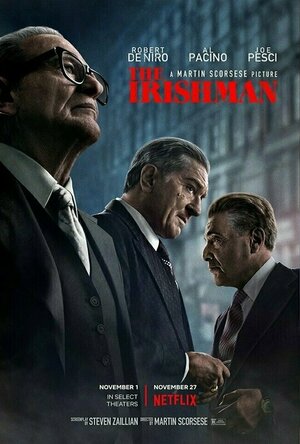Search
Search results
Gareth von Kallenbach (980 KP) rated The Amazing Spider-Man 2 (2014) in Movies
Jun 19, 2019
Life for Peter Parker, (Andrew Garfield), has become interesting to say the least. He is juggling the delicate and complex balance of being Spider-man as well as a high school senior and boyfriend to Gwen Stacy (Emma Stone).
His enthusiasm for his wall crawling alter ego is evident from the start as he still is as fast with a quip as he is with his webs and fists when taking down the bad guys of New York.
A chance encounter with an ultra nerdy yet brilliant Oscorp employee named Max (Jaime Foxx), puts a series of events into motion that will put the city and Spider-man on a collision with a severe danger.
When a freak accident transforms Max into a being capable of becoming and discharging pure electricity, the passive aggressive Max has an outlet for his pent up anger and hero worship and sets to make all those who ignored him pay.
At the same time, internal politics have left Oscorp in the hands of young Harry who learns he has limited time to solidify his position and legacy.
All of this would be enough for anyone to deal with but Peter is conflicted by his love for Gwen and his promise to her late father to stay away from her for her own safety.
Peter also has to content with his Aunt May (Sally Field) and unlocking the mystery of his parents who left him with his Aunt and Uncle years earlier never to return.
If this sounds a bit heady for a comic book based movie then you will not be surprised with the first ¾ of the film. It does contain some great 3D moments of Spider-man slinging his way around the city and some good moments of action but mostly the audience gets character introductions and plot expositions.
When it does get to the action, it does so in a very sleek and stylish way but one that is so obviously CGI created that it plays more like a video game.
For me the liberties taking with the characters and the history of the series were a bit much at first as what they came up with for Electro is not even close to the way he is portrayed in the comics.
Thankfully the final act of the film delivers and sets up future films in grand style even though the trailers tease content that is barely in the film and would have made for a great addition to the film.
Garfield and Stone have great chemistry with one another, and Foxx does his best despite in my opinion being very miscast for the role.
Director Marc Webb is clearly a fan of the source material and I am eager to see what he comes up with for future installments.
As it stands, “The Amazing Spider-man 2”, is an enjoyable summer film but not as good as the film that preceded it and could have been so much more.
http://sknr.net/2014/05/02/amazing-spider-man-2/
His enthusiasm for his wall crawling alter ego is evident from the start as he still is as fast with a quip as he is with his webs and fists when taking down the bad guys of New York.
A chance encounter with an ultra nerdy yet brilliant Oscorp employee named Max (Jaime Foxx), puts a series of events into motion that will put the city and Spider-man on a collision with a severe danger.
When a freak accident transforms Max into a being capable of becoming and discharging pure electricity, the passive aggressive Max has an outlet for his pent up anger and hero worship and sets to make all those who ignored him pay.
At the same time, internal politics have left Oscorp in the hands of young Harry who learns he has limited time to solidify his position and legacy.
All of this would be enough for anyone to deal with but Peter is conflicted by his love for Gwen and his promise to her late father to stay away from her for her own safety.
Peter also has to content with his Aunt May (Sally Field) and unlocking the mystery of his parents who left him with his Aunt and Uncle years earlier never to return.
If this sounds a bit heady for a comic book based movie then you will not be surprised with the first ¾ of the film. It does contain some great 3D moments of Spider-man slinging his way around the city and some good moments of action but mostly the audience gets character introductions and plot expositions.
When it does get to the action, it does so in a very sleek and stylish way but one that is so obviously CGI created that it plays more like a video game.
For me the liberties taking with the characters and the history of the series were a bit much at first as what they came up with for Electro is not even close to the way he is portrayed in the comics.
Thankfully the final act of the film delivers and sets up future films in grand style even though the trailers tease content that is barely in the film and would have made for a great addition to the film.
Garfield and Stone have great chemistry with one another, and Foxx does his best despite in my opinion being very miscast for the role.
Director Marc Webb is clearly a fan of the source material and I am eager to see what he comes up with for future installments.
As it stands, “The Amazing Spider-man 2”, is an enjoyable summer film but not as good as the film that preceded it and could have been so much more.
http://sknr.net/2014/05/02/amazing-spider-man-2/
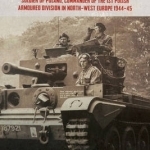
Man of Steel and Honour: General Stanislaw Maczek: Soldier of Poland, Commander of the 1st Polish Armoured Division in North-West Europe 1944-45
Book
This is a biography of one of the most undervalued commanders of the Second World War, General...
Merissa (13770 KP) rated Left (Reflections #12) in Books
May 23, 2023
Left is about Jess, simple as that. We've had Isaac's side of the story in Lost, so I was happy to read Jess' side, even though I'm not her biggest fan.
Jess lost her memories when Oblivion got his hands on her. Since then, she has had to deal with other people's memories of her, trying to fit her back into a box that she no longer remembers. She reacted by pushing those that knew her away, and going with Wyatt on an 'adventure'.
Now, I've already said that I'm not her biggest fan. I thought she came across as incredibly self-centred, petty and selfish. The best bit about this book is when Jess realised that for herself! To acknowledge your faults takes courage. To try and better yourself is hard work, but Jess is prepared to try her best. Wyatt - there's more to this playboy than meets the eye, but I just couldn't warm to him. I won't give spoilers, but I will say that I'm not disappointed with how his story turned out.
There is an awful lot of information in this book, from descriptions of their surroundings to the history of the Graves line, to politics within the pack. It does feel a bit heavy during these parts, but stick with it as there is information in there that you need to know.
This is an exceptional series that I have thoroughly enjoyed. I am wondering where Dean will take it next! For this book as a whole, I will give it 4-stars. However, for the ending, that is definitely 5-stars! This is part of a series, so I would definitely recommend that you start from the beginning and immerse yourself in this world.
* A copy of this book was provided to me with no requirements for a review. I voluntarily read this book, and the comments here are my honest opinion. *
Merissa
Archaeolibrarian - I Dig Good Books!
Feb 24, 2016
Jess lost her memories when Oblivion got his hands on her. Since then, she has had to deal with other people's memories of her, trying to fit her back into a box that she no longer remembers. She reacted by pushing those that knew her away, and going with Wyatt on an 'adventure'.
Now, I've already said that I'm not her biggest fan. I thought she came across as incredibly self-centred, petty and selfish. The best bit about this book is when Jess realised that for herself! To acknowledge your faults takes courage. To try and better yourself is hard work, but Jess is prepared to try her best. Wyatt - there's more to this playboy than meets the eye, but I just couldn't warm to him. I won't give spoilers, but I will say that I'm not disappointed with how his story turned out.
There is an awful lot of information in this book, from descriptions of their surroundings to the history of the Graves line, to politics within the pack. It does feel a bit heavy during these parts, but stick with it as there is information in there that you need to know.
This is an exceptional series that I have thoroughly enjoyed. I am wondering where Dean will take it next! For this book as a whole, I will give it 4-stars. However, for the ending, that is definitely 5-stars! This is part of a series, so I would definitely recommend that you start from the beginning and immerse yourself in this world.
* A copy of this book was provided to me with no requirements for a review. I voluntarily read this book, and the comments here are my honest opinion. *
Merissa
Archaeolibrarian - I Dig Good Books!
Feb 24, 2016
Curtis Sittenfeld's engaging novel looks at Hillary Rodham's life through this prism: what if she hadn't married Bill Clinton? In 1971, as Hillary Rodham graduates from Wellesley, she delivers a commencement speech that gains national prominence. She heads to Yale Law school--an intelligent woman, filled with the desire to help those in need. It is there she meets Bill Clinton, a fellow law student. The connection between the two is instant--for the first time, Hillary feels she has found someone who appreciates her both emotionally and physically. In real life, Hillary and Bill head to Arkansas. He proposes three times, and she finally accepts, becoming Hillary Rodham Clinton.
"The first time I saw him, I thought he looked like a lion."
But here, in this imaginative and powerful novel, Hillary does not accept Bill's third proposal. Devastated, she leaves Arkansas and embarks on a different life. The pair's paths cross again (and again) in the years ahead, causing Hillary to sometimes doubt her decision.
I found this to be such an interesting read and oddly hopeful somehow, as if Sittenfeld read my brain and created the world I dreamed of--what a great book to read during these dismal times. It takes a little time to get into the flow of the writing: the first-person narrative certainly places you in the action, but I needed to adjust to switching back and forth between time periods (Hillary's past and present). And, funnily enough, you have to remember that this is and isn't Hillary--the first quarter of the book or so loosely follows Hillary's real life, so sometimes you have to recall who is truly speaking. I am not actually reading a Hillary memoir.
I loved how this book rewrites history--and with zero apologies. Bill Clinton does not always come off looking good here, though the love and chemistry between the two is clearly palpable. You find a variety of other characters from real life, so to speak, who sometimes play their actual roles, or re-imagined versions, and it's so fun. And, why yes, even Donald Trump has a place here. What a wonderful place it is, too. If you love politics, or political satire, there's a lot to love here.
"'If Bill Clinton was my boyfriend, I'd keep an eye on him too.'"
The Hillary of Sittenfeld's world is so real, so true, and so vulnerable and lovable. (And whoa, are there sex scenes, guys.) Even better, Sittenfeld doesn't make her perfect by any stretch; she's flawed and fallible, too. It doesn't take long to see history's actual Hillary taking this path, and sometimes, oh sometimes, I longed for her to do so. Sittenfeld excels at telling a tale from another person's perspective, somehow putting herself in their shoes. I got so caught up in this Hillary's world that I read the last half of the book in one take, desperate to know what happened to her. She felt real to me, and I needed to know how her life turned out. Please, Hillary, let it all work out this time.
This book is different, yes. It might not be for everyone, politically. But I found it fascinating to think about such a thing--how the choices we make in life affect so much. Not just saying yes to a marriage proposal, but all the other actions we take on any given day. This is a smartly written book, cementing Sittenfeld as a brilliant writer and storyteller. 4 stars.
"The first time I saw him, I thought he looked like a lion."
But here, in this imaginative and powerful novel, Hillary does not accept Bill's third proposal. Devastated, she leaves Arkansas and embarks on a different life. The pair's paths cross again (and again) in the years ahead, causing Hillary to sometimes doubt her decision.
I found this to be such an interesting read and oddly hopeful somehow, as if Sittenfeld read my brain and created the world I dreamed of--what a great book to read during these dismal times. It takes a little time to get into the flow of the writing: the first-person narrative certainly places you in the action, but I needed to adjust to switching back and forth between time periods (Hillary's past and present). And, funnily enough, you have to remember that this is and isn't Hillary--the first quarter of the book or so loosely follows Hillary's real life, so sometimes you have to recall who is truly speaking. I am not actually reading a Hillary memoir.
I loved how this book rewrites history--and with zero apologies. Bill Clinton does not always come off looking good here, though the love and chemistry between the two is clearly palpable. You find a variety of other characters from real life, so to speak, who sometimes play their actual roles, or re-imagined versions, and it's so fun. And, why yes, even Donald Trump has a place here. What a wonderful place it is, too. If you love politics, or political satire, there's a lot to love here.
"'If Bill Clinton was my boyfriend, I'd keep an eye on him too.'"
The Hillary of Sittenfeld's world is so real, so true, and so vulnerable and lovable. (And whoa, are there sex scenes, guys.) Even better, Sittenfeld doesn't make her perfect by any stretch; she's flawed and fallible, too. It doesn't take long to see history's actual Hillary taking this path, and sometimes, oh sometimes, I longed for her to do so. Sittenfeld excels at telling a tale from another person's perspective, somehow putting herself in their shoes. I got so caught up in this Hillary's world that I read the last half of the book in one take, desperate to know what happened to her. She felt real to me, and I needed to know how her life turned out. Please, Hillary, let it all work out this time.
This book is different, yes. It might not be for everyone, politically. But I found it fascinating to think about such a thing--how the choices we make in life affect so much. Not just saying yes to a marriage proposal, but all the other actions we take on any given day. This is a smartly written book, cementing Sittenfeld as a brilliant writer and storyteller. 4 stars.
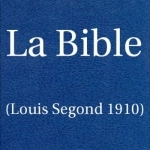
La Bible(Louis Segond 1910) French Bible
Reference
App
This application contains French Bible(Version Louis Segond 1910). Cette application contient la...
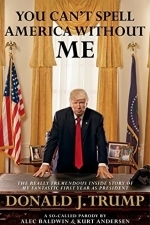
You Can't Spell America Without Me: The Really Tremendous Inside Story of My Fantastic First Year as President
Kurt Andersen and Alec Baldwin
Book
Political satire as deeper truth: Donald Trump’s presidential memoir, as recorded by two...
politics comedy
Hazel (1853 KP) rated Stork Mountain in Books
May 25, 2017
Captivating
I received this book for free through Goodreads First Reads.
Bulgarian-born, short storywriter Miroslav Penkov has turned to full-length novels with this captivating book, Stork Mountain. Set in the Bulgarian Strandja Mountains on the border of Turkey, he explores religion, mythology, the past and the present in a society affected by long-term political unrest.
The narrator, a young man who remains nameless throughout, relocated to the United States of America as a child after the fall of Communism. Now he returns to his home country to find his grandfather, an elderly man he lost contact with three years ago. However his real motive is purely for self gain: to sell his section of the family land in order to pay off student loans and his rising debt.
Naturally, things do not go according to plan. The protagonist finds his grandfather hiding in the village of Klisura, a place divided between the Christians and the Muslims. He also discovers that there is no longer any land for him to sell, making his journey fairly pointless. Instead of returning to the Western world, he stays in his grandfather’s house and, very slowly, begins to learn the truth about his family’s past, the man his grandfather once was, and the superstitious pagan activities still affecting some of the village’s inhabitants today.
Stork Mountain is full of the history, folklore and mythology of a little known about European country. Although ultimately a contemporary novel, there is a lot to learn about events that led up to southern Bulgaria’s current condition. As well as being informative, Penkov plays with his readers’ hearts by including a Romeo and Juliet-esque relationship between the narrator and a Muslim girl, and also reveals a similar affair between a younger Grandfather and the girl of his dreams.
Books containing politics are often reserved for those with particular interest in the topic, however Stork Mountain is suitable for a much larger audience. The inclusion of Bulgarian folklore adds a dark fairytale-like quality to the story; and the romance, something for the reader to latch onto.
On reading the blurb I jumped to the conclusion that this book would be boring. I was wrong. Whereas stories with similar themes can be hard going, Stork Mountain was fast paced and easy to read. There were a few confusions about who was talking or whether the narrative was about the past or the future, but these issues may be something that is improved upon as the author finds his groove in full-length novels.
Even if, like me, you have prejudged this book to be boring, I urge you to give it a go. You may find yourself pleasantly surprised. Miroslav Penkov definitely has a future in the world of literature.
Bulgarian-born, short storywriter Miroslav Penkov has turned to full-length novels with this captivating book, Stork Mountain. Set in the Bulgarian Strandja Mountains on the border of Turkey, he explores religion, mythology, the past and the present in a society affected by long-term political unrest.
The narrator, a young man who remains nameless throughout, relocated to the United States of America as a child after the fall of Communism. Now he returns to his home country to find his grandfather, an elderly man he lost contact with three years ago. However his real motive is purely for self gain: to sell his section of the family land in order to pay off student loans and his rising debt.
Naturally, things do not go according to plan. The protagonist finds his grandfather hiding in the village of Klisura, a place divided between the Christians and the Muslims. He also discovers that there is no longer any land for him to sell, making his journey fairly pointless. Instead of returning to the Western world, he stays in his grandfather’s house and, very slowly, begins to learn the truth about his family’s past, the man his grandfather once was, and the superstitious pagan activities still affecting some of the village’s inhabitants today.
Stork Mountain is full of the history, folklore and mythology of a little known about European country. Although ultimately a contemporary novel, there is a lot to learn about events that led up to southern Bulgaria’s current condition. As well as being informative, Penkov plays with his readers’ hearts by including a Romeo and Juliet-esque relationship between the narrator and a Muslim girl, and also reveals a similar affair between a younger Grandfather and the girl of his dreams.
Books containing politics are often reserved for those with particular interest in the topic, however Stork Mountain is suitable for a much larger audience. The inclusion of Bulgarian folklore adds a dark fairytale-like quality to the story; and the romance, something for the reader to latch onto.
On reading the blurb I jumped to the conclusion that this book would be boring. I was wrong. Whereas stories with similar themes can be hard going, Stork Mountain was fast paced and easy to read. There were a few confusions about who was talking or whether the narrative was about the past or the future, but these issues may be something that is improved upon as the author finds his groove in full-length novels.
Even if, like me, you have prejudged this book to be boring, I urge you to give it a go. You may find yourself pleasantly surprised. Miroslav Penkov definitely has a future in the world of literature.
Gareth von Kallenbach (980 KP) rated Abraham Lincoln: Vampire Hunter (2012) in Movies
Aug 7, 2019
When I first heard about this movie, I was expecting the worst. I’ve been exposed to my fair share of B-type horror movies (I was raised on “Critters,” “Ghoulies,” “Killer Clowns from Outerspace,” and everything else one can imagine as a kid). I laughed at the SyFy channel’s monster movie line-up and was sick unto death of zombie movies. That said, I wasn’t entirely excited for this movie’s premier. My boyfriend, however, was chomping at the bit. He adores B-type
movies and this was no exception. And, to my honest surprise, it wasn’t as awful as I had wholly envisioned in my head.
The movie starts with a young Abraham Lincoln (Benjamin Walker) defending his slave friend, Will Johnson (Anthony Mackie), from abuse at the hands of a slave trader. A scuffle ensues and Abraham’s father is ultimately met face-to-face with “Adam” (Rufus Sewell), a well-known and well-feared trader in the lands. The two exchange heated words with Adam threatening to extract his revenge by some unknown means. What seems later that evening, Abraham’s mother is attacked by Adam as young Abraham watches from the shadows. Adam, as one can guess, is a vampire and leaves Abraham’s mother in such a state she cannot recover. Upon her death, Abraham vows revenge, devoting the next ten years of his life to killing Adam.
As the reader can surmise, Abraham is ill-equipped to face Adam and when the day finally arrives, he finds himself wholly unprepared for the task. Cue the entrance of Henry Sturgess, Vampire Hunter. Saving Abraham from an early demise, Henry (Dominic Cooper) takes the young man under his wing and teaches him the way of vampire hunting. He teaches young Abe that the vampires control the whole of the south, using the slave trade as their means for fresh and easily accessible blood. Having never tolerated slavery of any kind, Abraham is infuriated by this and his desire to eradicate the vampire colony grows.
From there he is bequeathed his infamous axe, its edge lined in silver, and we watch as young Abe grows and matures as a skilled warrior before our eyes. When the time comes, Abraham is sent away on a mission to kill select vampires in a quiet town, vampires who pose as noted professionals and townspersons during the day. As a rule, Henry cautions Abraham not to make any friends or form any kind of attachments. Of course, it’s at this point he meets Mary Todd and that whole theory goes out the window. In addition to his vampire hunting, he also begins his career in politics and as a renowned orator. Given one’s knowledge of history, we can see where this all leads.
I won’t divulge the whole of the story here – I’m sure you can imagine where it goes and what comes of it. That said, aside from the over-the-top fighting scenes and certain drawn out moments (the horse stampede and train fight immediately come to mind), it wasn’t as awful as I had originally envisioned. The movie is entertaining and still
retains a fair amount of the B-movie cheesiness one hopes for in watching it. Obviously, the storyline is wracked with historical inaccuracies and unlikely moments (really, Abe Lincoln survives a horse being thrown at him?), but it’s a B-movie and I wasn’t expecting perfection.
If you’re looking for something that offers sheer entertainment and nothing further, this is a movie for you then. You won’t be blown away by the acting skills, the special effects are decent enough (don’t pay extra for 3-D though – it was awful), and while the movie feels slow and drags at parts, over-all it’s rather entertaining for what it is.
movies and this was no exception. And, to my honest surprise, it wasn’t as awful as I had wholly envisioned in my head.
The movie starts with a young Abraham Lincoln (Benjamin Walker) defending his slave friend, Will Johnson (Anthony Mackie), from abuse at the hands of a slave trader. A scuffle ensues and Abraham’s father is ultimately met face-to-face with “Adam” (Rufus Sewell), a well-known and well-feared trader in the lands. The two exchange heated words with Adam threatening to extract his revenge by some unknown means. What seems later that evening, Abraham’s mother is attacked by Adam as young Abraham watches from the shadows. Adam, as one can guess, is a vampire and leaves Abraham’s mother in such a state she cannot recover. Upon her death, Abraham vows revenge, devoting the next ten years of his life to killing Adam.
As the reader can surmise, Abraham is ill-equipped to face Adam and when the day finally arrives, he finds himself wholly unprepared for the task. Cue the entrance of Henry Sturgess, Vampire Hunter. Saving Abraham from an early demise, Henry (Dominic Cooper) takes the young man under his wing and teaches him the way of vampire hunting. He teaches young Abe that the vampires control the whole of the south, using the slave trade as their means for fresh and easily accessible blood. Having never tolerated slavery of any kind, Abraham is infuriated by this and his desire to eradicate the vampire colony grows.
From there he is bequeathed his infamous axe, its edge lined in silver, and we watch as young Abe grows and matures as a skilled warrior before our eyes. When the time comes, Abraham is sent away on a mission to kill select vampires in a quiet town, vampires who pose as noted professionals and townspersons during the day. As a rule, Henry cautions Abraham not to make any friends or form any kind of attachments. Of course, it’s at this point he meets Mary Todd and that whole theory goes out the window. In addition to his vampire hunting, he also begins his career in politics and as a renowned orator. Given one’s knowledge of history, we can see where this all leads.
I won’t divulge the whole of the story here – I’m sure you can imagine where it goes and what comes of it. That said, aside from the over-the-top fighting scenes and certain drawn out moments (the horse stampede and train fight immediately come to mind), it wasn’t as awful as I had originally envisioned. The movie is entertaining and still
retains a fair amount of the B-movie cheesiness one hopes for in watching it. Obviously, the storyline is wracked with historical inaccuracies and unlikely moments (really, Abe Lincoln survives a horse being thrown at him?), but it’s a B-movie and I wasn’t expecting perfection.
If you’re looking for something that offers sheer entertainment and nothing further, this is a movie for you then. You won’t be blown away by the acting skills, the special effects are decent enough (don’t pay extra for 3-D though – it was awful), and while the movie feels slow and drags at parts, over-all it’s rather entertaining for what it is.
James P. Sumner (65 KP) rated Official Secrets (2019) in Movies
Oct 16, 2019
Should this tense, dramatic thriller remain a Secret?
I was lucky enough to be invited to an advanced screening of this film, ahead of it's general release.
"Official Secrets (2019)" is a tense and clever thriller based on real events that occurred during the beginning of the Iraq War in 2003. Keira Knightley plays Katherine Gun, a British spy-turned-whistleblower who worked for GCHQ at the time. She leaked confidential information to the press, exposing illegal activities at the highest levels of government intended to falsely justify the invasion of Iraq. Backed by a high-calibre support cast, which includes Matt Smith and Ralph Fiennes, this film serves to show you the true story of what happened during this shadowy and questionable chapter in our history.
The film uses actual news footage from the time to great effect, making you feel as if you're watching a biographical documentary on the History Channel. Knightley is captivating as the Robin Hood-esque lead, delivering a truly believable and heartfelt performance throughout. It wasn't until the credits began to roll and they showed you footage of the real Katherine Gun from news reels at the time that you realise just how good Knightley's performance really was. From the way she dressed to the tone in which she spoke and the small mannerisms of her personality, it was a very, very good portrayal.
As with most films like this, I imagine certain events and aspects of the story were dramatised or exaggerated for the purposes of cinema, but at no point did it ever feel like it. Any changes to real events were subtle enough that you couldn't spot them without detailed knowledge of what really happened at the time - something, it turns out, very few people actually had.
Matt Smith is both charming and uncompromising as the stubborn reporter who champions Gun's crusade for the truth, giving her support and a platform to get her message out to the world. Similarly, Ralph Fiennes looks right at home as the lawyer who defends her in the public eye.
I admit that certain aspects and legalities within the plot felt, at times, a little far-fetched, but honestly, the film did such a good job of telling this story, I'm inclined to think that's still how things actually happened.
Spoilers aren't as much of an issue for films like this, as you already know the outcome. But this film isn't about the destination, it's about the journey. It shines a spotlight on the down-and-dirty world of global politics, as well as how difficult it can sometimes be to choose to do the right thing.
The film moves along at a slow yet perfect pace. It doesn't look or feel like a Hollywood movie, which I think is a very good thing. Instead, it feels like a BBC drama, similar to Line of Duty or Luther or Spooks, and that's exactly the kind of approach this film needed to work.
I went into this admittedly understanding very little of what went on back in 2003. I was much younger and wasn't interested in geopolitics, or even the news in general. But seeing this film piqued my interest, and after a few hours of Googling the events depicted in the film, I'm even more in awe of just how well made this was. Kudos to everyone involved.
My only criticism, if I had to give one, would be the number of times people had to say "Official Secrets Act"... I get that's what the film is about, but it seemed like every character had a quota for the number of times they had to mention it! But that's just nit-picking for nit-picking's sake. This truly is a cracking film. One of the gems of the year that's not to be missed!
"Official Secrets (2019)" is a tense and clever thriller based on real events that occurred during the beginning of the Iraq War in 2003. Keira Knightley plays Katherine Gun, a British spy-turned-whistleblower who worked for GCHQ at the time. She leaked confidential information to the press, exposing illegal activities at the highest levels of government intended to falsely justify the invasion of Iraq. Backed by a high-calibre support cast, which includes Matt Smith and Ralph Fiennes, this film serves to show you the true story of what happened during this shadowy and questionable chapter in our history.
The film uses actual news footage from the time to great effect, making you feel as if you're watching a biographical documentary on the History Channel. Knightley is captivating as the Robin Hood-esque lead, delivering a truly believable and heartfelt performance throughout. It wasn't until the credits began to roll and they showed you footage of the real Katherine Gun from news reels at the time that you realise just how good Knightley's performance really was. From the way she dressed to the tone in which she spoke and the small mannerisms of her personality, it was a very, very good portrayal.
As with most films like this, I imagine certain events and aspects of the story were dramatised or exaggerated for the purposes of cinema, but at no point did it ever feel like it. Any changes to real events were subtle enough that you couldn't spot them without detailed knowledge of what really happened at the time - something, it turns out, very few people actually had.
Matt Smith is both charming and uncompromising as the stubborn reporter who champions Gun's crusade for the truth, giving her support and a platform to get her message out to the world. Similarly, Ralph Fiennes looks right at home as the lawyer who defends her in the public eye.
I admit that certain aspects and legalities within the plot felt, at times, a little far-fetched, but honestly, the film did such a good job of telling this story, I'm inclined to think that's still how things actually happened.
Spoilers aren't as much of an issue for films like this, as you already know the outcome. But this film isn't about the destination, it's about the journey. It shines a spotlight on the down-and-dirty world of global politics, as well as how difficult it can sometimes be to choose to do the right thing.
The film moves along at a slow yet perfect pace. It doesn't look or feel like a Hollywood movie, which I think is a very good thing. Instead, it feels like a BBC drama, similar to Line of Duty or Luther or Spooks, and that's exactly the kind of approach this film needed to work.
I went into this admittedly understanding very little of what went on back in 2003. I was much younger and wasn't interested in geopolitics, or even the news in general. But seeing this film piqued my interest, and after a few hours of Googling the events depicted in the film, I'm even more in awe of just how well made this was. Kudos to everyone involved.
My only criticism, if I had to give one, would be the number of times people had to say "Official Secrets Act"... I get that's what the film is about, but it seemed like every character had a quota for the number of times they had to mention it! But that's just nit-picking for nit-picking's sake. This truly is a cracking film. One of the gems of the year that's not to be missed!
Andy K (10823 KP) rated The Irishman (2019) in Movies
Nov 28, 2019
Great but disappointing
Frank Sheeran starts in humble beginnings driving a meat truck while trying to make a living to support his family. He takes the favor of the right connect mobsters and quickly rises through the ranks to become one of its elite. He perpetrates countless villainous activities including murder, bribery, extortion and general unpleasantness toward his fellow man to the point where it almost becomes routine.
Enter Jimmy Hoffa.
Sheeran befriends the mighty Teamsters union boss and popular, yet controversial figure and the two form a lasting friendship. Sheeran sometimes operates as middle man between the hot-headed Hoffa and his mob contacts, always trying to unruffle feathers and keep the peace. Over many years, there are ups and downs even when Hoffa goes to prison, but their friendship endures.
Sheeran's life of excess has fractures his own family life; however, as his daughter becomes estranged after seeing just what her father is capable of. Their relationship is strained and may never recover. Sheeran's mob connections become more of a family for him as they are where his true loyalties lie.
Sheeran's role n the death of Hoffa has to be considered speculation as, to my knowledge, the perpetrator(s) have never been fully identified. This could be due to the source book by Charles Brandt "I Heard You Paint Houses" where Sheeran confesses. There is forensic evidence to back this up, so I guess it could be more definitive than I first suspected.
If you are comparing The Irishman to Goodfellas and/or Casino, you will be disappointed. Easily in 3rd place of the 3, I enjoyed while watching, but no sequence in particular really stood out. I can remember entire sections of both Goodfellas and Casino and here it seems like Scorsese has lost some of his creativity as far as cool camera shots, long pans or long takes in favor o just letting his fantastic cast have the spotlight. Not a bad idea if you have De Niro, Pacino and Pesci, but I still feel like the film lacked that extra "spark" making it truly great. The screenplay was adequate which is also surprising since Academy Award winning screenwriter Steven Zaillian is no stranger to an epic story, but, again, seems more by the numbers and not very standout.
The run time of almost 3 1/2 hours doesn't help as the film gets bogged down somewhat in the union infighting politics and I can see where that would bore much of the audience. There is a lot to enjoy about the film led by the stellar cast of course. De Niro, while always fantastic, doesn't really have the flashy part this time. Even Joe Pesci is understated compared to his characters in other Scorsese films. Pacino as the stubborn, bullish Hoffa is the standout in my opinion, but every time he gets angry and starts shouting I always think of his role as Big Boy Caprice in Dick Tracy (ok I'm a little weird).
I won't be surprised if the film gets lots of Oscars nods for acting, directing and technicals; however, I feel this is a case where it might be a hot property for a little while and then fade away quickly. We also still don't know if history might repeat itself and Oscar voters turn a cheek away from a Netflix film in favor of one with a more "traditional" distribution. Many believe the same happened in 2018 when critic favorite Roma lost to Green Book for the same reason.
We shall see...
Enter Jimmy Hoffa.
Sheeran befriends the mighty Teamsters union boss and popular, yet controversial figure and the two form a lasting friendship. Sheeran sometimes operates as middle man between the hot-headed Hoffa and his mob contacts, always trying to unruffle feathers and keep the peace. Over many years, there are ups and downs even when Hoffa goes to prison, but their friendship endures.
Sheeran's life of excess has fractures his own family life; however, as his daughter becomes estranged after seeing just what her father is capable of. Their relationship is strained and may never recover. Sheeran's mob connections become more of a family for him as they are where his true loyalties lie.
Sheeran's role n the death of Hoffa has to be considered speculation as, to my knowledge, the perpetrator(s) have never been fully identified. This could be due to the source book by Charles Brandt "I Heard You Paint Houses" where Sheeran confesses. There is forensic evidence to back this up, so I guess it could be more definitive than I first suspected.
If you are comparing The Irishman to Goodfellas and/or Casino, you will be disappointed. Easily in 3rd place of the 3, I enjoyed while watching, but no sequence in particular really stood out. I can remember entire sections of both Goodfellas and Casino and here it seems like Scorsese has lost some of his creativity as far as cool camera shots, long pans or long takes in favor o just letting his fantastic cast have the spotlight. Not a bad idea if you have De Niro, Pacino and Pesci, but I still feel like the film lacked that extra "spark" making it truly great. The screenplay was adequate which is also surprising since Academy Award winning screenwriter Steven Zaillian is no stranger to an epic story, but, again, seems more by the numbers and not very standout.
The run time of almost 3 1/2 hours doesn't help as the film gets bogged down somewhat in the union infighting politics and I can see where that would bore much of the audience. There is a lot to enjoy about the film led by the stellar cast of course. De Niro, while always fantastic, doesn't really have the flashy part this time. Even Joe Pesci is understated compared to his characters in other Scorsese films. Pacino as the stubborn, bullish Hoffa is the standout in my opinion, but every time he gets angry and starts shouting I always think of his role as Big Boy Caprice in Dick Tracy (ok I'm a little weird).
I won't be surprised if the film gets lots of Oscars nods for acting, directing and technicals; however, I feel this is a case where it might be a hot property for a little while and then fade away quickly. We also still don't know if history might repeat itself and Oscar voters turn a cheek away from a Netflix film in favor of one with a more "traditional" distribution. Many believe the same happened in 2018 when critic favorite Roma lost to Green Book for the same reason.
We shall see...
